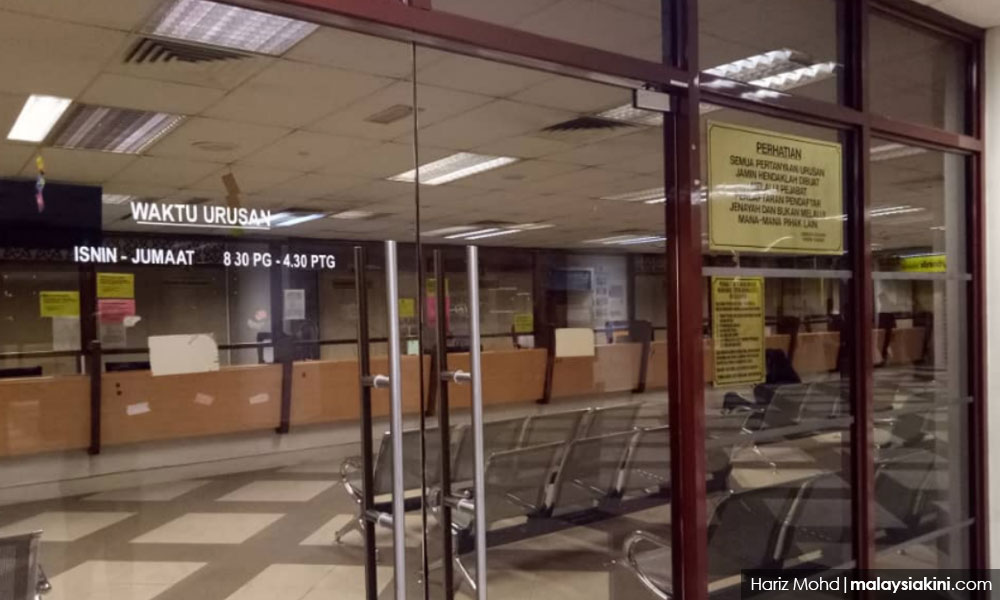The judiciary and the Malaysian Bar have agreed to cooperate on a proposal to reinstate some form of an electronic bail system, following plans to phase out the e-Jamin system by May 19 to make way for a manual bail system.
According to a circular from the Bar to its member-lawyers dated today, the legal profession body said this was the agreement secured between it and the Federal Court chief registrar during a meeting yesterday.
The Bar said that while its efforts to get a deferment on the e-Jamin system phasing out were to no avail, the judiciary did agree to work together with the body to reinstate an electronic bail platform in the near future.
“The Bar Council raised several concerns at the meeting, including the ramifications of terminating e-Jamin and the potential impact on accused persons.
“Particularly those from the B40 group, who might face prolonged incarceration due to the administrative change,” said Criminal Law Committee co-chairpersons Ravi Chandran Subash Chandran and Vivekananda Sukumaran in the circular sighted by Malaysiakini.
Alternative solutions
The Bar also said the judiciary indicated that the estimated timeline for the return transfer of bail sum deposited via the outgoing e-Jamin system is between three and seven days, thus advising member lawyers to seek an extension from the courts and make arrangements with accused persons where necessary.
“The Bar Council will actively collaborate with the relevant authorities and the judiciary, including state courts, to facilitate a smooth transition and prevent any adverse impact on the public,” the body said, adding that it is exploring alternative solutions and other related transitional matters.

In a circular from the Bar Council to all its members yesterday, the legal professional body said it was informed of this change by the chief registrar of the Federal Court via an email to the Bar dated May 13.
In the circular, titled “Update on Bail Management in Courts in Malaysia”, members were informed that “the e-Jamin system will no longer be used by the courts”.
“Bail management and processes will revert to the manual practice before e-Jamin from May 19, 2024, onwards,” the Bar circular stated.
The legal profession body advised lawyers on the procedures for the return of bail money after May 18 for cases in courts that were made through the e-Jamin system.
“We will be compiling feedback and will continue to engage with the courts regarding this development,” the Bar told its members.
Malaysiakini has reached out to the Palace of Justice in Putrajaya over the latest development.
First bail payment solution in Southeast Asia
In February 2020, the Malaysian Reserve reported the launch of e-Jamin, which sought to act as an online bail solution to shorten the posting of bail for court cases nationwide.
It reported that Bank Islam Malaysia Bhd and Bank Muamalat Malaysia Bhd collaborated with Dapat Vista Sdn Bhd to launch Malaysia’s pioneer digital bail payment solution, which had a soft launch earlier on Jan 13 that same year.

E-Jamin was the first bail payment solution in Malaysia and Southeast Asia, which allowed bailors to make payments within 30 minutes, leading to a speedy release of those in remand.
The system allowed bailors to post bail via mobile devices and laptops without going through a time-consuming process of travelling between the courts and banks to open a surety account.
It allowed bail payment via FPX online banking and required bailors to complete an online form with their personal details and that of the accused.
The bail money would then be automatically directed to the designated bank accounts once payment is made.
At the close of the case, the bail money would then be refunded to the bailors’ bank accounts within a short time frame. - Mkini



No comments:
Post a Comment
Note: Only a member of this blog may post a comment.